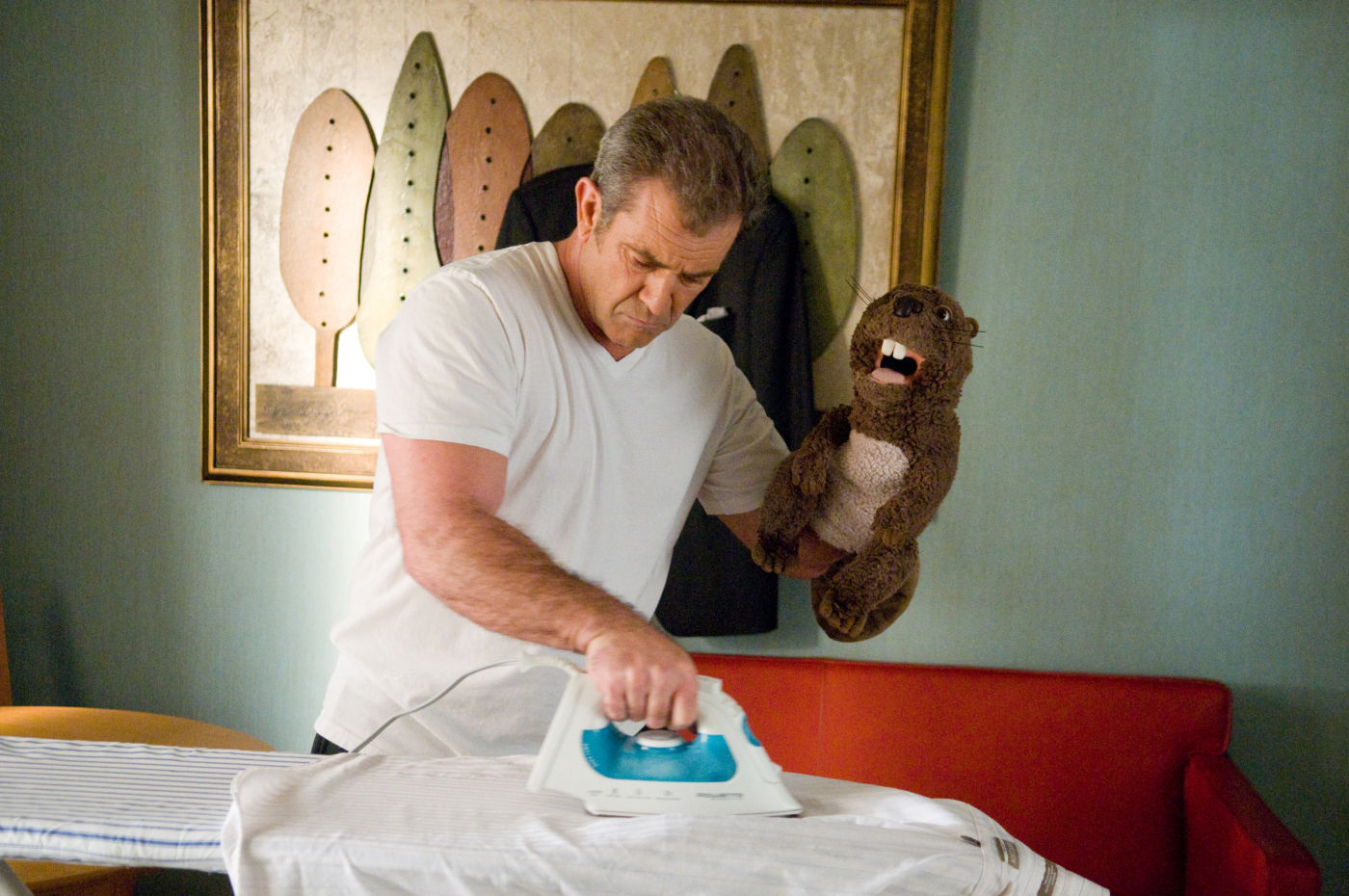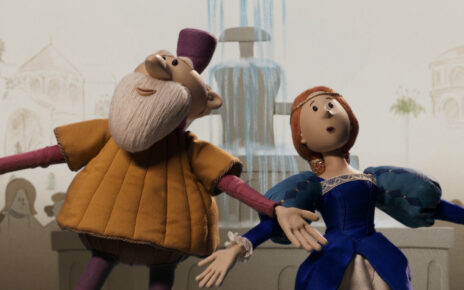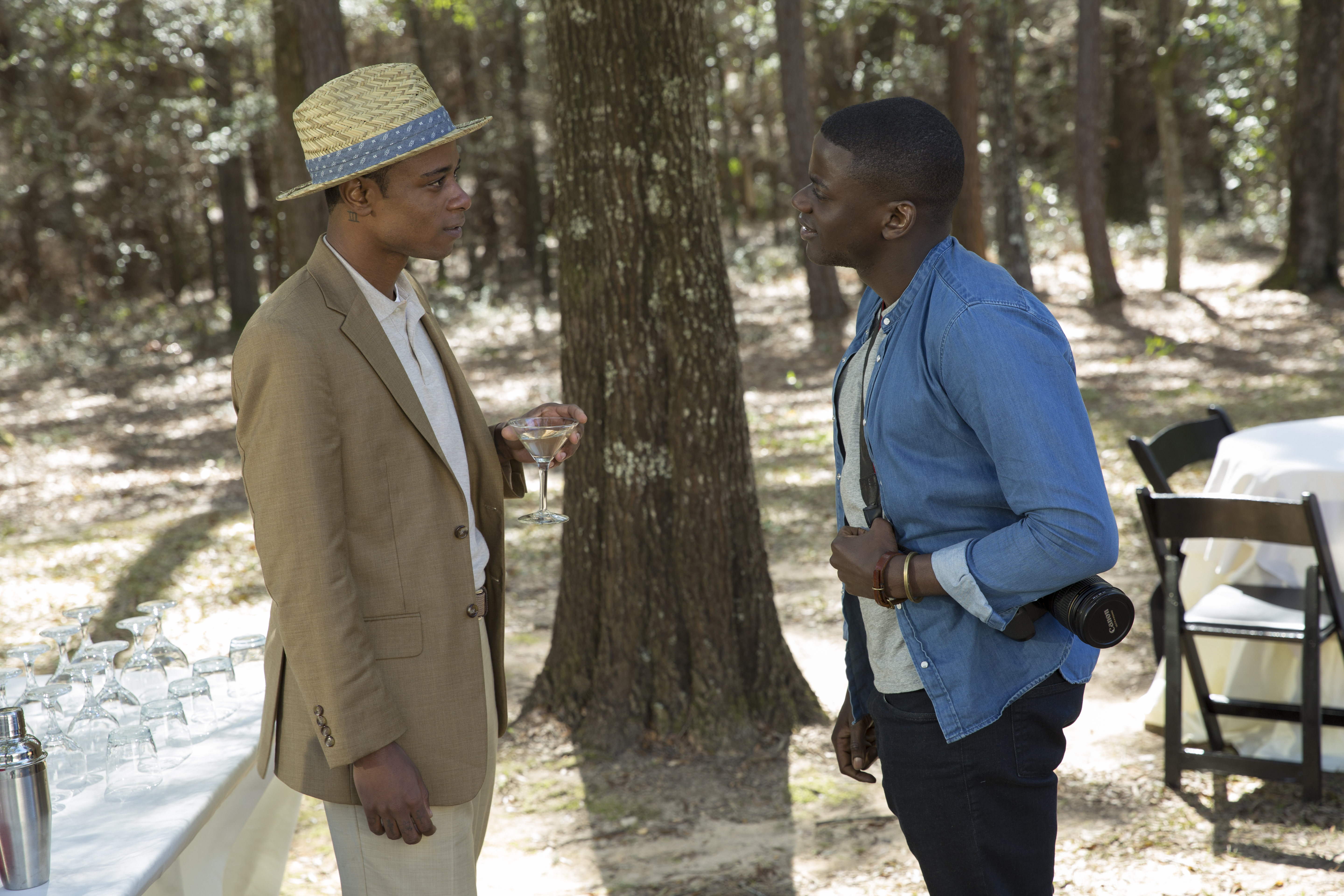It’s a weird feeling when you know you’re watching an iconic film, like you should be paying more attention or something to that effect. It’s weirder still when you don’t exactly know what the icon will be. And it’s a tad eerie knowing that as one of the five people who actually saw the film, you kind of have to help define the icon.
The Beaver is probably the worst idea brought to screen in several years. A happiness-challenged man in a middle age crisis finds a hand-puppet beaver in a dumpster, and in lieu of suicide, decides to communicate exclusively through his rodent avatar. And who plays the crazy middle-aged man? Why it’s Mel Gibson, of course. Why be taken seriously when you can be a walking metaphor?
I’m sorry. Who thought this was a good idea?
Walter Black (Mel) commits 100% to the beaver alter-ego. The movie never suggests that Walter is capable of a normal life without the puppet. 100%. I mean it. Where Mel might have played this role tongue-in-cheek during his Lethal Weapon days, he never looks outside himself and pokes fun at Walter. I suppose that’s what I respect about the film – if you’re gonna commit to an awful idea, don’t half-ass it. Get your whole ass right in there, Mel Gibson & Jodie Foster (the latter not only directs, but plays Walter’s semi-estranged wife). Sure, there’s a only-in-the-movies moment or two – like the premise – or a more common one in which the beaver-influenced hero creates a toy product line that real life would find mediocre but on screen, it’s a best seller. Aside from this indulgence, The Beaver doesn’t cheat. Walter isn’t finding reality by himself. We know that.
So we’re left with this odd man talking exclusively through a puppet and behaving as if the puppet is a living, breathing, personality filled entity. And Walter has chosen to give the beaver the personality of a tough-love blue-collar Cockney psychologist. There isn’t a single endearing thing about the personality. It sounds like a villain in Wallace & Gromit or a bit like Bob Hoskins on a bad day. All of Walter’s friends and relations become enablers – what else can they do? For many, he’s their boss. What do you do if your boss goes off the deep end? Finding a receptive Walter means talking to the beaver. The beaver is his reality, his rudder. The beaver becomes the icon for Walter’s sanity.
Ah, the icon. We have come full circle. Outside the screen, what will The Beaver represent? Is this Mel’s Ishtar? Mel’s Waterworld? Mel’s Hudson Hawk? My guess is no. The Beaver, while indulgent and misguided, wasn’t a bad film. Not by a long shot. And it had both Anton Yelchin and Jennifer Lawrence, our upcoming Katniss; her fans are going to find this film eventually to evaluate Jennifer’s early work. I don’t see The Beaver as a David Lynch “way out there” kind of thing – the story is too much in the present, in the real. And while there might be a temptation to call this a forgivable but weird career divergence (like Adam Sandler’s Punch-Drunk Love), Mel is completely about divergence these days: who is the real you? The Road Warrior? The Jew hater? Apocalypto? “Sugar Tits”? My guess is the occasional comedian will milk it for absurd comic value. Perhaps after that time has passed, The Beaver becomes its own icon – the quintessential “terrible idea that didn’t make a terrible film, but you actually had to see it to understand.” Well, I’m in on the joke, how about you?
Rated PG-13, 91 Minutes
D: Jodie Foster
W: Kyle Killen
Genre: Psychosis
Type of person most likely to enjoy this film: Puppeteers
Type of person least likely to enjoy this film: Those without tolerance for the mentally unstable



